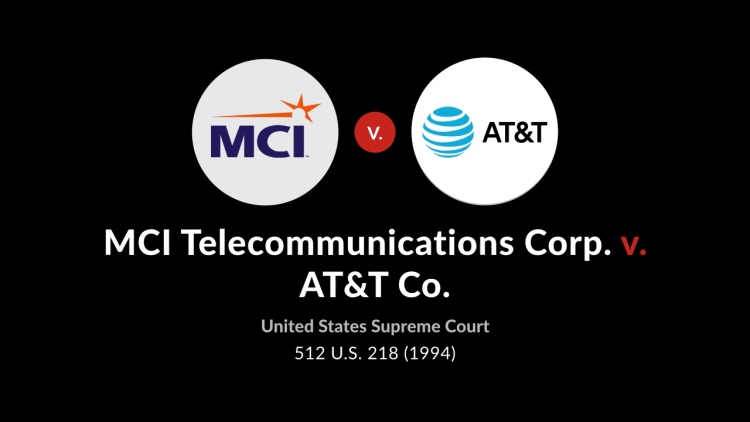MCI Telecommunications Corp. v. AT&T Co.
United States Supreme Court
512 U.S. 218 (1994)
- Written by Peggy Chen, JD
Facts
Section 203(a) of Title 47 of the United States Code requires communications common carriers to file tariffs with the Federal Communications Commission (FCC). Section 203(b) authorizes the FCC to “modify” any requirement of § 203. Beginning in 1979, the FCC decided to make tariff filing optional (called permissive detariffing) for all nondominant long-distance carriers. The rationale for this decision was to reduce costs on new entrants to the long-distance-carrier market. The permissive detariffing applied to nondominant carriers, resellers, and specialized common carriers, such as MCI Telecommunications Corp. (MCI) (defendant). AT&T, the dominant carrier, filed a complaint with the FCC challenging MCI’s failure to file tariffs. The FCC dismissed AT&T’s complaint, finding that MCI was in compliance with the FCC’s rule on permissive detariffing. AT&T petitioned for review of the rule in the United States Court of Appeals for the District of Columbia Circuit. The court of appeals found that the FCC did not have authority to enact a permissive detariffing policy. The FCC then released a report and order finding that the permissive detariffing policy was within its authority under the Communications Act. AT&T filed a motion with the District of Columbia Circuit seeking summary reversal of the FCC’s order. The District of Columbia Circuit granted the motion.
Rule of Law
Issue
Holding and Reasoning (Scalia, J.)
Dissent (Stevens, J.)
What to do next…
Here's why 908,000 law students have relied on our case briefs:
- Written by law professors and practitioners, not other law students. 47,100 briefs, keyed to 997 casebooks. Top-notch customer support.
- The right amount of information, includes the facts, issues, rule of law, holding and reasoning, and any concurrences and dissents.
- Access in your classes, works on your mobile and tablet. Massive library of related video lessons and high quality multiple-choice questions.
- Easy to use, uniform format for every case brief. Written in plain English, not in legalese. Our briefs summarize and simplify; they don’t just repeat the court’s language.





